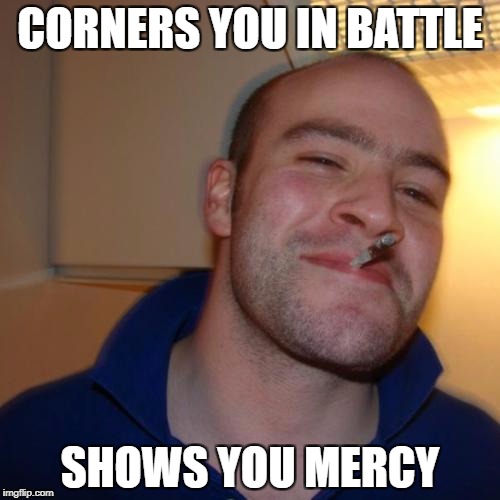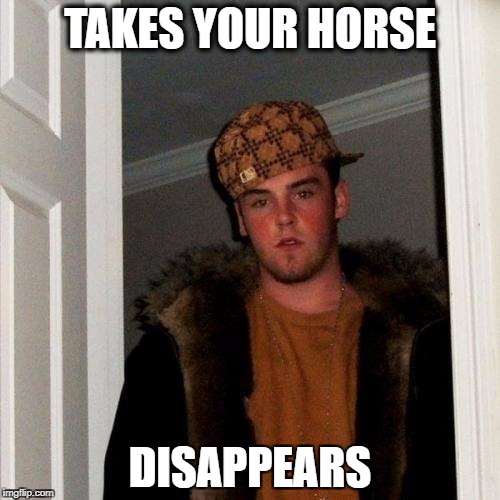Reading: The Knight of the Cart (Chretien de Troyes)
In The Knight of the Cart, the main character (Lancelot) undergoes a series of trials and tribulations in his journey to save Queen Guinevere from her captor. However, because this is set in an Arthurian world, Lancelot is honor-bound in all of his actions and statements, with presents himself with multiple moral dilemmas. When he first meets the knight guarding the bridge, he swears that he will defeat him in battle; when finally has him at his mercy, a girl begs Lancelot to show the knight mercy. This presents a conflict of honor, as Lancelot must choose between honoring his oath to kill the knight who offended him, or to show him mercy in the spirit of chivalry. Another instance is when he muses over whether or not to “sleep” with his hostess. He has pledged his loyalty to Guinevere, yet he feels he must honor his oath to his hostess, as she allowed him to stay the night. That being said, he unflinchingly returns to the house to sleep with her, “for he could not break his promise” (Troyes 220). This notion of honoring one’s words is one of the most common motifs of this Arthurian romance.

Another curious theme within this story is Lancelot’s curious decision-making ability when it comes to basic moral sense. For instance, he hesitates to save the hostess girl from being raped, an action that one would normally consider obvious. Lancelot also initially treats Sir Gawain with a certain level of flippancy, snatching one of his spare horses and riding off with it to save Guinevere.

This stark difference between Lancelot’s actions regarding honor-bound duty and moral sensibility in the initial part of the story set the stage for his interactions with Guinevere later on.